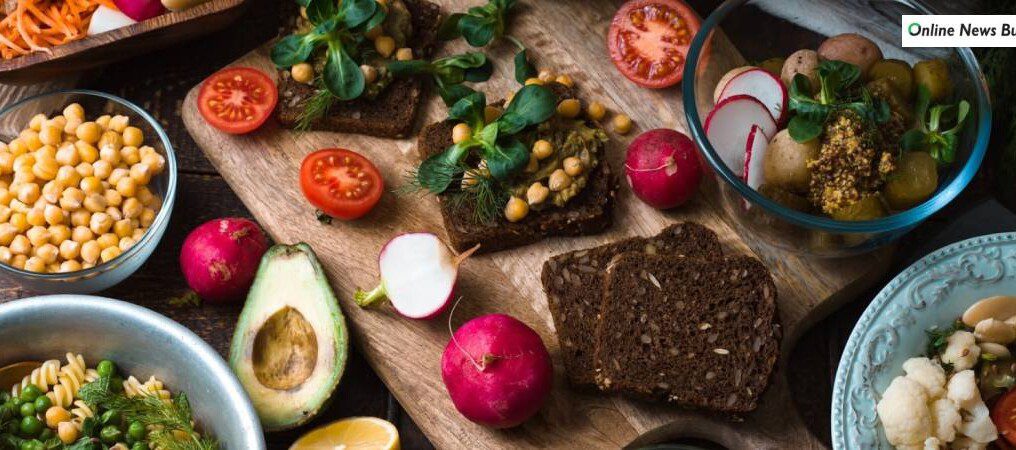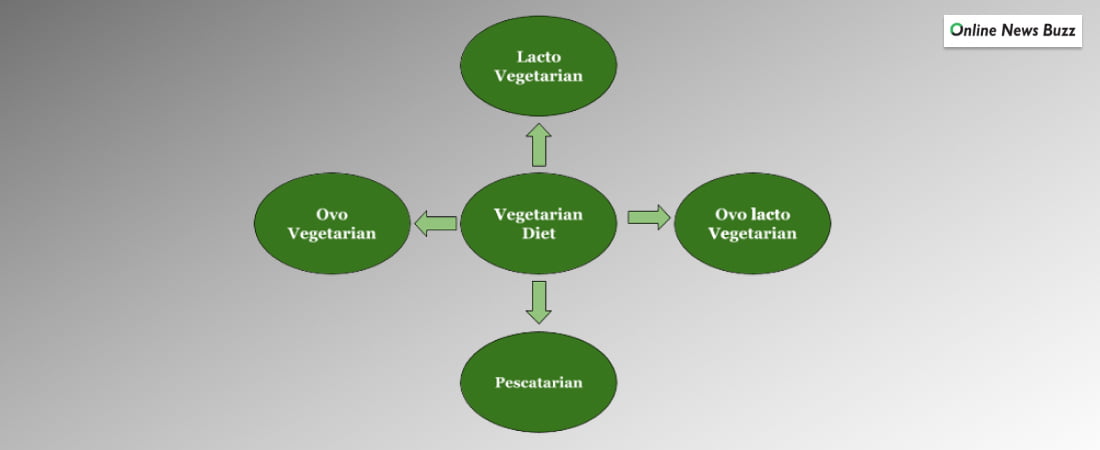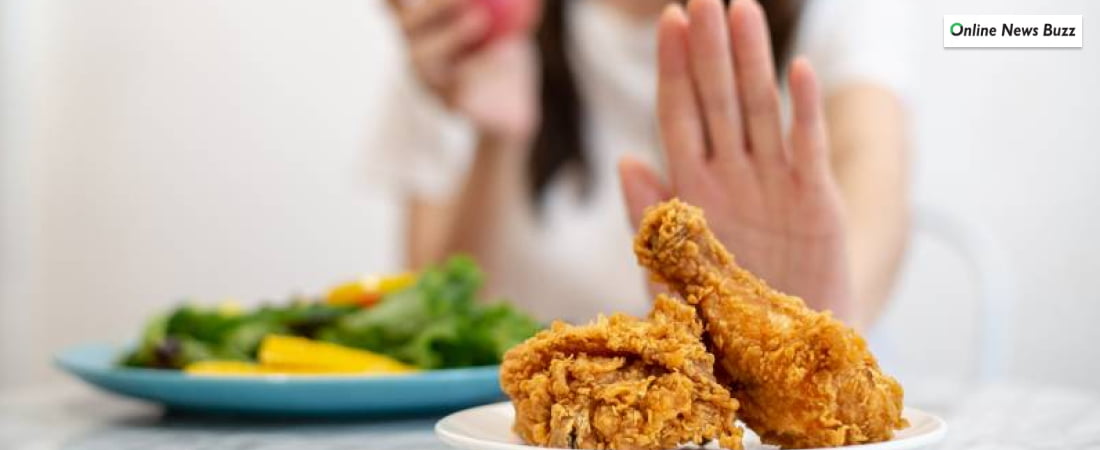
The pandemic of 2020 that happened due to the onset of coronavirus has made us rethink what we eat and how we take care of our health. Our health is one of the most important things on our priority list today. This is the reason why many people actively look after what they eat or consume.
There are various types of diets that people across the world follow. One of these is the vegetarian diet. Even though many people have been following this diet and eating vegetables strictly for a very long time, it has gained a lot of popularity in recent years.
Don’t know what to eat or how to follow a vegetarian diet? Then, you have come to the right place. Stick till the end to find out.
Click Here To Read: Health Advantages of Sweets and Chocolate
What Is A Vegetarian Diet?
A vegetarian diet consists of eating vegetables and abstaining from eating any form of meat. In other words, it is a diet free from fish, meat, or any other meat products. This means there is no poultry product or seafood that can be eaten when you decide to turn into a vegetarian.
There are many reasons why people decide to become vegetarians for life. Some people regard a diet free from flesh or meat as much healthier. They also believe that it is a more ethical way of living.
Many people condemn the cruel practice of killing animals for consumption. This is also one of the major reasons for converting or sticking to vegetarianism.
There are a variety of vegetarian diets. To know them, keep scrolling.
Read More: How to Lose Weight Eating Prepared Meals
Vegetarian Diet: Types
Some of the main types are:
A vegetarian diet does not only mean eating vegetables and fruits. There are a wide variety of vegetarian diets.
1. Lacto Vegetarian Diet
In this type of diet, people abstain from eating fish, meat, eggs, or other poultry items, as well as the food that contains them. However, you are allowed to eat all forms of dairy products like milk, butter, cheese, and yogurt.
2. Ovo Vegetarian Diet
In this type of diet, you are not supposed to eat any animal products like meat and fish. You should also refrain from consuming several dairy products. However, you are allowed to eat eggs. So your diet will consist of vegetables, fruits, nuts and seeds, and eggs.
3. Ovo Lacto Vegetarian Diet
This form of a vegetarian diet is very common. If you think about switching to this type of diet, you will be allowed to eat all forms of dairy products as well as eggs. However, you cannot eat meat and fish.
4. Pescatarian
If you think you want to convert to vegetarianism but cannot give up on your love for fish, you can choose to become a pescatarian. In this type of vegetarian diet, you are supposed to eat all fruits and vegetables as well as fish.
Vegetarian Diet Menu: What Can You Eat?
Even though it is true that a vegetarian diet consists of mainly plant-based products on the menu, there are a variety of things that you can eat if you are a vegetarian.
Some of the things that a vegetarian diet plan consists of are,
- Legumes
- Whole grains
- Nuts
- Seeds
- Vegetables
- Fruits
- Milk
- Eggs (if you are ovo-lacto vegetarian)
What Can You Not Eat?
While it is known that people who follow the diet do not eat meat or seafood, there are still other things that should be kept in mind.
The food or food products that cannot be eaten if you switch to this diet are.
- Chicken
- Fowl
- Goat
- Beef
- Pork
- Lamb
- Exotic meats like alligator, turtle, ostrich, etc.
- Fish
- Lobster
- Eggs (not if you are ovo-lacto vegetarian)
There are many vegetarians who also do not consume products that contain rennin (the enzyme that is found in the stomach of calves) or gelatin.
You May Like To Read This: What Is Ketogenic Diet? How To Do It?
Vegetarian Diets: Benefits
There are many popular types of diets and vegetarian diet is one of them.
So why should you change your diet and become a vegetarian if there are no benefits? There is no one who will be willing to do that. That is the reason why I have come up with the benefits of a vegetarian diet.
Some of the health benefits of vegetarian diet are as follows.
1. Reduces The Risk Of Cancer
Research has shown that a vegetarian diet may reduce the risk of several types of cancer. Some of these are colon cancer, breast cancer, stomach cancer, and rectum cancer.
Some studies show that the reason can be because of the toxic elements that are present in the animal meat or the presence of mercury in several fishes. These harmful elements lead to the growth of cancerous cells.
2. Aids In Weight Loss
There is another important reason behind switching to vegetarianism. That is to lose weight. Many studies show that people (adults and children) who follow a the diet are much leaner than those who maintain a nonvegetarian diet.
One of the reasons for that can be limiting the number of high-calorie foods or animal fats. The fat content in food items of plants and vegetables is much lesser than the fat content in chicken, fish, and red meat.
3. Stabilizes The Sugar Levels
Studies have shown that maintaining a vegetarian diet helps to lower blood sugar levels in the body. The nutrients in a vegetarian diet prevent diabetes, especially type 2 diabetes.
4. Improves Heart Health
One of the major benefits of a vegetarian diet is that it promotes heart health. It reduces the risk of several heart diseases and strokes. It lowers the level of bad cholesterol.
Although a vegetarian diet has several health benefits and helps in weight loss these are also some side effects. These side effects have been observed by scientists in vegetarians some of these side effects are depression, vitamin deficiency and gastric. These side effects have been explained in detail below. While it’s true vegetables, nuts and fruits in a vegetarian diet offer many micronutrients to your body to function well. But nutrients like zinc, vitamin B12 and iodine hardly get in your body after leaving meat and seafood when following a vegetarian diet. When your body is deprived of these nutrients, you will experience fatigue, loss of taste, diarrhea, loss of smell, suffer from goiters and neurological damage. So even if you are following a vegetarian diet take additional supplements and vitamins with your food. One of the worst side effects of shifting to a vegetarian diet is excess gas. Excess gas is uncomfortable and creates awkwardness in public. The extra gas formed in your body is the result of high level plant fiber present in your body. Especially vegetables like beans, cauliflower, wheat, broccoli and peaches create heavy gas in your body. To avoid heavy gas problems, take note of the type of food you intake and how your body reacts with it. If you find a food that creates gas after you intake it, avoid taking that vegetable or fruit in your diet. You can also lower your intake of that particular food item that creates gas in your body to avoid sticky situations. According to researchers who studied individuals following vegetarian diets, 18 percent vegetarians are likely to suffer from depression. Again 28 percent vegetarians are likely to suffer from anxiety disorders and 15 percent likely to have depressed moods. But no accurate reason was ascertained for these disorders. Researchers listed all these disorders in their study based on vegetarian diets and mental health. Like vegans, vegetarians can also have to face awkward situations in social gatherings. Especially with most menus filled with non vegetarian items it can be hard to opt for a proper vegetarian meal. Especially when traveling it can be hard to find vegetarian food options. It is also hard to follow a vegetarian diet when friends and family do not support you or do not follow this diet. So most gatherings are filled with non vegetarian food items.Some Possible Side Effects Of Vegetarian Diet
Vitamin Deficiencies
Heavy gas
Depression And Anxiety
Perceived Social Awkwardness
Frequently Asked Questions (FAQs):
Here are a few frequently asked questions about Vegetarian diet.
Q1. What Is On The Menu Of The Vegetarian Diet?
The foods that you can eat in a vegetarian diet consist of everything that comes from plants. Some of them are pulses, grains, nuts and seeds, fruits, and vegetables. However, many people also choose to include certain dairy products like cheese and eggs.
Q2. Do Vegetarians Eat Eggs?
Even though eggs come from animals (chicken), there are many vegetarians who do eat eggs. Unless you are a vegan, you can stick to eating eggs.
Q3. What Is The Difference Between Vegan And Vegetarian?
This is one of the most commonly mistaken terms. Let’s make it clear for once and all: being vegan and being vegetarian are two different things.
While vegetarians eat everything that comes from plants (certain types of vegetarian diets also include eggs), a vegan diet excludes anything that comes from animals. These include eggs, milk, butter, and cheese.
And That’s A Wrap!
There are many types of diets that people follow to stay healthy and fit. Some of them are the paleo diet and the weight watcher diet. One of these diets is the vegetarian diet.
The diet where people stick to eating mainly plant-based products and abstain from eating animal products like meat and flesh or seafood is known as a vegetarian diet. There are many reasons why people tend to convert to vegetarianism. One very common reason is to condemn the cruel practice of killing animals for consumption.
There are many health benefits of eating only vegetables for following a this diet. Many studies have shown that switching to vegetarian food helps to improve heart health and regulates blood sugar level.
Read Also:
- What Is Atkins Diet? How To Do It?
- Food & Nutrition for adolescent to follow
- The Benefits of Maintaining Your Weight
































